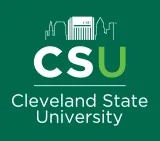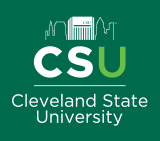How to Become a Speech-Language Pathologist

Speech-language pathology is a rewarding and impactful career choice for those who want to make an important difference in people’s lives. Speech-language pathologists (SLP) are essential for helping individuals of all ages with communication and swallowing disorders, thereby improving their overall quality of life.
In this blog, we will explore the steps you can take to become a speech-language pathologist including education requirements, clinical placements and licensure. If you are wondering how to become a speech-language pathologist, read on to consider the specifics of the role and how your current skills may be foundational and transferable into this exciting career option.
Understanding the Role of a Speech-Language Pathologist
A speech-language pathologist is a licensed allied healthcare professional who assesses, diagnoses and treats individuals with speech, language, communication and swallowing disorders. Skilled professional SLPs can work in healthcare, schools or private practice, so there is flexibility in the available work settings for this profession.
If you want to become a speech-language pathologist but are concerned about the focused nature of the specialty, it is important to recognize that the role of an SLP goes beyond simply helping patients speak more clearly. Speech-language pathologists may work with children who have developmental delays or with adults who are recovering from a brain injury and experience difficulty with using or understanding language.
SLPs help their patients or clients with:
- Both spoken and written (reading and writing) language.
- Self-reflection for authentic and effective expression
- Recovery from surgeries where swallowing is affected
- Academic and social challenges
Therapy provided by SLPs occurs in both one-on-one and group settings. Interprofessional practice is common because comprehensive care requires collaboration between SLPs and other allied healthcare professionals like occupational therapists and psychologists. When SLPs work in educational settings, collaboration with parents and other professionals is necessary to create effective interventions that support children with learning disabilities.
Educational Pathway to Become a Speech-Language Pathologist
A bachelor’s degree in communication sciences, linguistics or psychology is an ideal starting place for becoming an SLP. These subjects are foundational for understanding human speech and language development.
A master’s program in Communication Sciences and Disorders (CSD) that may be delivered through online learning is next, which leads to becoming a speech-language pathologist. Additional prerequisite coursework is required for those without an undergraduate degree in CSD. When looking for a master’s program, accreditation by the Council on Academic Accreditation (CAA) is important.
Core subjects include speech and language disorders, voice disorders, cognitive disorders and dysphagia (swallowing difficulties). Clinical placements with practicum hours are also required and offer students hands-on experience under supervision.
Additional speech-language pathologist training includes a postgraduate clinical fellowship year to gain further supervised experience working directly with patients and/or clients. This helps to facilitate the transition from student to practicing SLP professional and is required for nationally recognized certification.
Certification and Licensure
State licensure is required to practice as a speech-language pathologist. Each state has its own requirements for licensure including exams and continuing education. Within the SLP field, efforts are in progress to create a compact system to standardize licensure across states.
Working in schools may require additional licensure or certification through the state’s board of education, and master’s programs for SLP preparation may include a teacher licensure pathway for those interested.
To practice as an SLP, professional standards highly recommend national certification, specifically the Certificate of Clinical Competence in Speech-Language Pathology (CCC-SLP) from the American Speech-Language-Hearing Association (ASHA). This certification is attained after passing the Praxis examination (and completing the postgraduate clinical fellowship) and is maintained through continuing education and professional development.
SLPs may also choose to specialize in specific areas, such as speech sound disorders, childhood apraxia of speech or autism spectrum disorders. Specializations often require additional training or certification, but they can open up new career opportunities and allow SLPs to focus on areas of personal interest.
Skills and Qualities of a Successful SLP
Becoming a successful SLP requires a unique combination of skills and personal qualities that can help build strong, meaningful relationships and deliver effective therapy.
Communication Skills
Communication is at the heart of speech-language pathology. An effective SLP must be able to listen attentively to their clients and/or patients, assess their needs and explain complex concepts in ways that are easy to comprehend. Clear communication is vital for helping individuals overcome challenges in articulating words, understanding language and enhancing social interaction.
Empathy and Patience
In speech-language pathology, the ability to understand and share the feelings of another person is essential. Every client is unique and many may feel frustration or embarrassment about their difficulties with speech and language. An empathetic SLP can help clients feel supported and understood, building trust and encouraging progress toward goals.
A successful SLP must also be patient and persistent, maintaining a positive and encouraging attitude throughout the therapy process. This quality helps motivate clients to stick with their treatment plan even when challenges arise.
Strong Problem-Solving
Being a strong problem-solver allows a speech-language pathologist to assess situations, develop effective treatment plans and adjust strategies as needed. From understanding medical history to interpreting speech patterns, the ability to observe, evaluate and make informed decisions is crucial in providing tailored therapy.
Attention to detail in speech-language pathology is having the ability to notice clues when working with clients, as the slightest change in behavior or speech pattern can make all the difference in diagnosis and creation of an effective treatment plan. By paying close attention to any nuances, an SLP can identify potential issues and adjust therapy approaches accordingly.
Career Opportunities and Advancement Potential
Those interested in advancing in their careers within speech-language pathology may focus in particular age groups, such as pediatrics or adults, or in particular disorder areas, such as neurogenic disorders or dysphagia (swallowing). SLPs can also become involved in research, teaching or administration, opening the door to even greater opportunities. The field is rich with options for professional growth, from certifications to advanced degrees, allowing SLPs to tailor their careers to their interests.
Speech-language pathology is a career that demands a combination of both technical expertise and strong interpersonal qualities. Strong communication skills, empathy, problem-solving abilities and patience are essential for success, while qualities like adaptability and attention to detail ensure that SLPs can meet the diverse needs of their clients or patients. With a variety of career opportunities and the potential for growth, becoming an SLP offers the chance to make a meaningful impact on the lives of others.

Become an SLP with a Master’s Degree from Cleveland State University
Whether you’re drawn to speech-language pathology because of personal experience or simply because you have a passion for helping others, the impact you can make is immeasurable. Cleveland State University offers a distance learning (online) program that leads to a Master of Arts in Communication Sciences and Disorders (M.A. in CSD) that can transition you into this rewarding field.
Features of our program include:
- 100% online coursework
- One residency experience
- Clinical placement support
- An optional SLP Teacher Licensure pathway
CSU’s online M.A. in Communication Sciences and Disorders provides you with the essential academic and clinical training required to start the certification process as a speech-language pathologist through the American Speech-Language-Hearing Association (ASHA).

